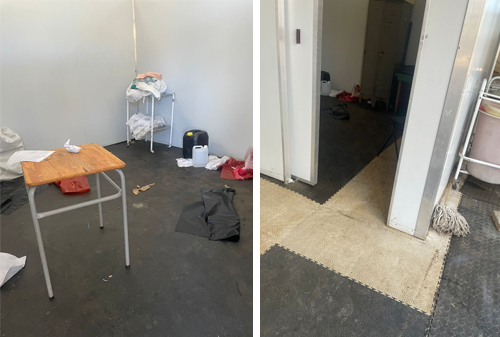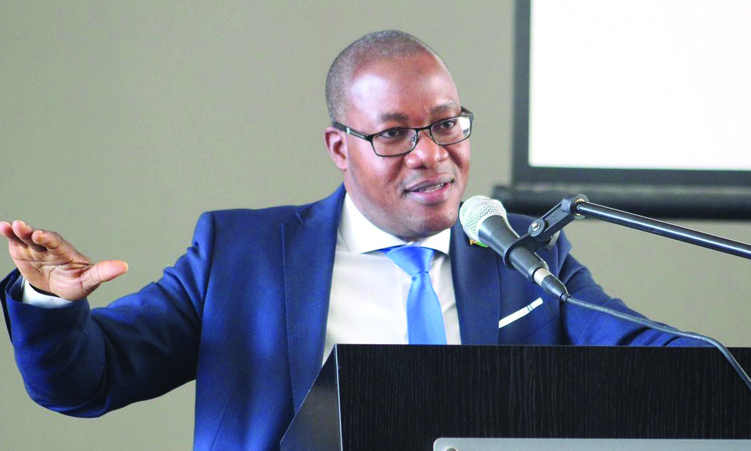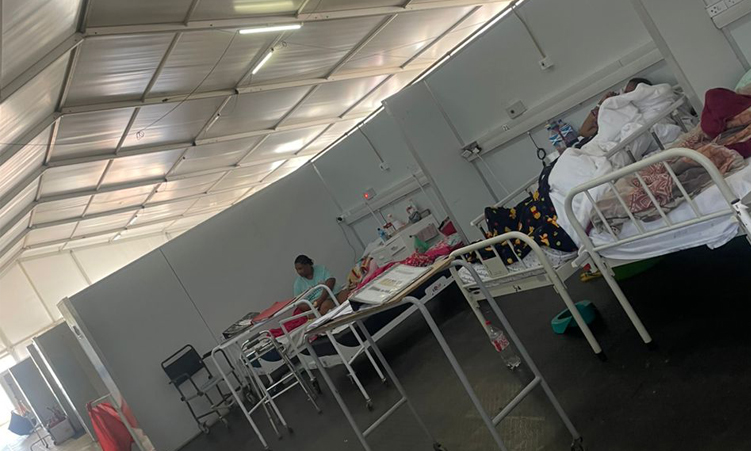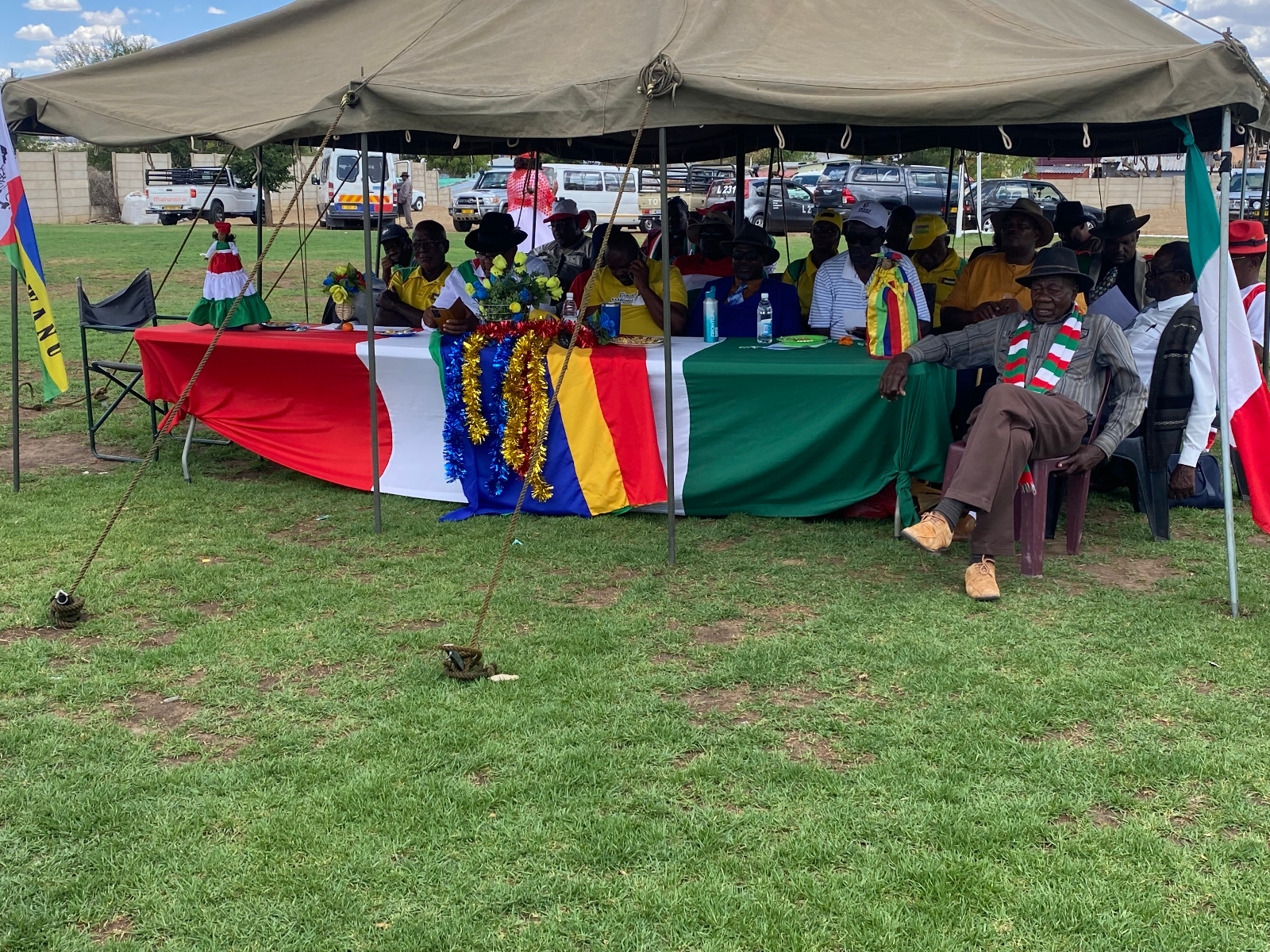… Katutura hospital in crisis
More than 60 mothers and their babies are forced to sleep on the floor at Katutura Intermediate Hospital’s paediatric and gastro ward due to a shortage of beds, while 50 patients are currently admitted in a tent.
Apart from the shortage of beds, patients have raised concerns about food shortages, frequent power cuts and unhygienic conditions.
This revelation comes after The Namibian visited the hospital on Saturday.

Health and social services executive director Ben Nangombe confirmed these challenges in an interview with The Namibian on Wednesday.
He said the hospital is currently undergoing renovations and blamed the country’s increased population for the shortage of beds.
Most of the patients who spoke to The Namibian preferred to remain anonymous due to fear of victimisation.
A patient currently admitted to the hospital’s Ward 8B, said she has been sleeping on the floor because the beds are full.
“Usually there are people that are coming from other regions and the beds get full. I have been sleeping on the floor for a week and it is very cold. I have to squeeze myself and my child on this mattress and it is unfair.” She further complained of electricity cuts and said the ward only has one toilet that is “always dirty”.
During The Namibian’s visit, we found that wards 6 and 5A and B of the male and female medical ward are currently under renovations.
‘FOOD NOT ENOUGH’
Another patient said the food they are served is not for human beings.
“The food we are currently getting is really not enough. It is not for a proper human being. The macaroni, you can count, usually eight or ten [pieces].
“They give us supper at 16h00 every day and by 22h00, we are already hungry. Sometimes it is two slices of bread and vegetables. The food for our children is even worse.”
A notice board at the hospital indicates that patients have been transferred to a tent located at the Windhoek Central hospital since February, due to ongoing renovations.
Surrounding the tent, which is situated between Windhoek Central Hospital’s maternity ward and the Mental Health Hospital, are bags of rubbish.

‘DIRTY HOSPITAL’
“Our government has failed us, imagine sleeping in a tent with this cold. It is very cold at night and on top of our current illnesses, we are getting the flu because of the cold.”
The patient added that the tent is always dirty.
“It is like we have been dumped, if you look at those bags, they have been outside for two days and still no one has come to take them.”
The patient blamed the entire government for this predicament.
“We cannot only blame the ministry of health for putting us in the tent, the whole government was supposed to make a plan for us not to sleep in a tent.”
A patient, who was admitted to Ward 8A, said she does not mind sleeping on the floor.
‘THE FLOOR IS BETTER’
“I do not have a problem with sleeping on the floor, because it is comfortable for me and my baby. The beds for the children are not looking nice and sleeping on the floor with my child is better for me. The mattress is more comfortable.

MINISTRY’S RESPONSE
Nangombe said he is aware of the power cuts issue, but noted that power to health facilities is supplied by the City of Windhoek.
“The ministry has installed stand-by generators that kick in in the event of a power failure. The purpose of stand-by generators is to ensure that there is no interruption to services, should the main power supply fail.” He said the ministry has directed all health facilities, including clinics and health centres, to ensure that stand-by generators are working well in case of power failures. “The ministry has also taken steps to upgrade power supply infrastructure at, specifically, the two facilities,” he said.
POPULATION INCREASE
Nangombe said the shortage of beds is due to a high number of patients seeking healthcare compared to the space available in affected wards. He said the increase of the country’s population has led to congestion at health facilities, which is why a new district hospital is being built in Windhoek.
“The Cabinet approved the cost plan for mobilisation of additional resources to strengthen the public health system. [It] will cost more than N$16 billion and involve the implementation of different interventions, such as the renovation, expansion and modernisation of physical infrastructure, recruitment of health professionals in different disciplines, procurement of medical equipment and ambulances and other interventions,” he said.
ONE BABY PER COT
Nangombe said due to limited space and to be able to do more with less, hospital management decided to temporarily remove cots in different rooms in the wards to create space for mattresses to accommodate more patients.
“The rooms in these specific wards are only able to accommodate one baby cot, however, if the cots are removed, room is created to accommodate more patients. This ensures mothers are not sent home, but remain close to their admitted babies in order to breastfeed them, as this is vital to the health and growth of these babies who are unwell.”

RELOCATION TEMPORARY
Due to the ongoing renovations, Nangombe said some patients have been temporarily relocated to a field hospital.
“The field hospital is a health facility designed to be utilised specifically for eventualities such as these. It is suitable and equipped to ensure that appropriate care is provided to patients accommodated there. This is a temporary arrangement while renovation work is being completed at the hospital. All efforts are made to ensure that the well-being and health of patients are secured in every respect,” he said.
Responding to concerns around the quality and quantity of food, Nangombe said the food is determined according to the dietary needs of the patients and the daily recommended calorie intake.
“While the majority of patients consume an ordinary diet, there are some who are on special diets, including patients suffering from diabetes mellitus and other ailments, or those who require liquid diet. Patients are provided with three meals per day, comprising breakfast, lunch and dinner. Some patients may require to be provided with meals at fewer intervals, depending on their treatment plans.”
Nangombe said a catering company contracted through public tender supplies meals for patients and the ministry has compiled specifications to be complied with in respect of the quality and quantity of meals provided to patients.
“The ministry will not hesitate to recommend to the Central Procurement Board the debarment of any defaulting company from taking place in procurement activities related to the provision of catering services to public entities,” he said.
NEW HOSPITAL
Recently, health and social services minister Kalumbi Shangula confirmed that a new state hospital will be built at Windhoek’s Havana informal settlement.
He said the ministry is currently busy with feasibility studies for the construction of a 300-bed district hospital, which is aimed to cost N$2,9 billion.
Stay informed with The Namibian – your source for credible journalism. Get in-depth reporting and opinions for
only N$85 a month. Invest in journalism, invest in democracy –
Subscribe Now!






